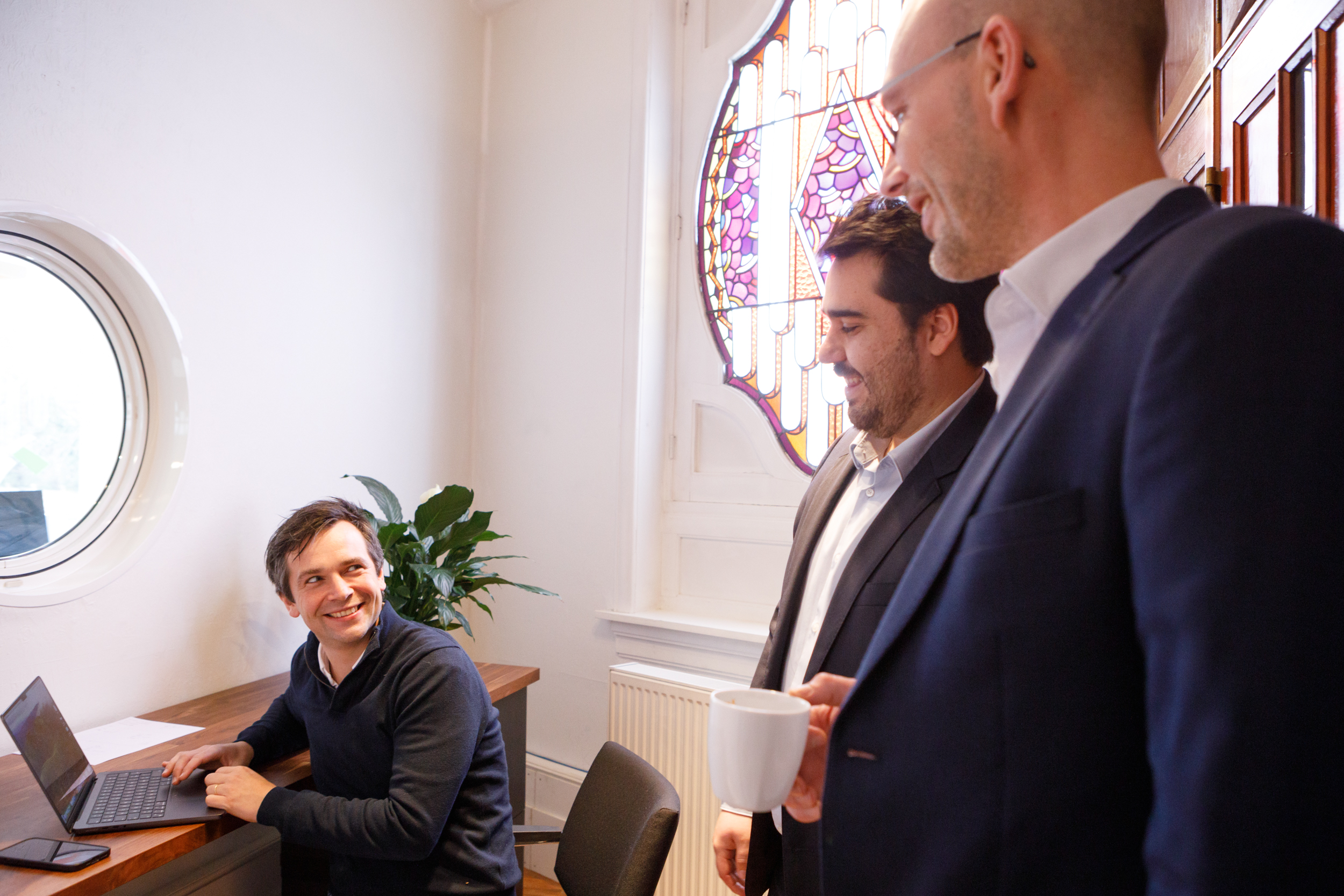
Evoqia is composed of a close-knit, experienced, international, and multi-disciplinary team. The development and implementation of digital solutions indeed require various disciplines that are seldom or never united in one person. Everything starts with Business Analysis, followed by architecture design, low-code development, integrations, project management, up to coaching and training. As a team, we are well-coordinated, always placing the customer at the center. We aim for a long-lasting collaboration where you can consistently rely on our support.








At Evoqia, we understand that every organization is unique; therefore, we provide tailor-made solutions that align with the specific needs and goals of our clients. With our broad expertise and experience across various business domains, we aim to harness the power of Evoqia and add value to our customers

Evoqia provides professional business consulting and analysis to assist organizations in optimizing their business processes and achieving their goals. Our experts collaborate closely with clients to gain a deep understanding of their business operations and challenges. Through thorough analysis and strategic advice, we aim to deliver valuable solutions that enhance efficiency and improve performance.

The design of a robust and scalable architecture is essential for the success of an organization. Evoqia provides expertise in architecture and design, delivering tailor-made solutions that meet the specific needs of our clients. We aim to establish a solid technological foundation that enables flexibility, scalability, and future-proofing of our solutions and applications.

With our expertise in no-code development, we can deliver solutions quickly and cost-effectively. Evoqia uses the no-code platform of creation to build tailor-made applications that require little to no manual coding. This will result in very short Time-To-Market (TTM) and fast implementations. This way we enable our customers to innovate swiftly so they can stay agile in the competitive market.

Successfully implementing projects requires a robust project management approach. Evoqia provides comprehensive project and implementation management services to ensure projects are completed on time and within budget. We coordinate activities, manage resources, and monitor progress to ensure successful implementation.

At Evoqia, we believe in the power of coaching and training to enhance the skills and performance of individuals and teams. We provide tailored guidance and training to help our clients develop their capabilities and grow. Our experienced coaches and trainers create an inspiring learning environment that fosters personal and professional growth.

We provide excellent service and support to our clients. Evoqia is ready to assist in solving technical issues, offering support during implementations, and ensuring the smooth operation of systems and processes. Our dedicated team is prepared to understand the needs of our clients and proactively provide solutions.
In the initial phase, we define the high-level business requirements for the solution we are building and outline the criteria for business success. During this phase, we stay focused on the ‘what’ and ‘why,’ avoiding detailed aspects such as the user interface or technology components. The Business Use Case exclusively concentrates on higher-level requirements and business processes.
Here, the vision is broken down into smaller components. We focus on the Minimum Viable Product (MVP) that quickly provides value. The MVP includes the essential features for the initial version, with future functionalities added later. This phase manages resources such as budget and roles for the first release.
This phase explores the broad vision of the business scenario and employs visual techniques for idea generation and solution visualization. We determine the UX, UI, workflow, and analytics during this stage. Work is conducted using No-Code tools, without separate documents. This phase provides a broad picture, without a focus on releases. The design emphasizes simplicity and speed. This is just the beginning.
This describes the building of the Minimum Viable Product (MVP) as defined earlier. We primarily use visual No-Code tools. While designing the MVP app, we visually capture everything within the No-Code platform, without separate design documents. This leads to an efficient and iterative approach. The result is a complete solution, including a data model, workflows, user forms, and any necessary reports.
Listening to user feedback is essential for exceeding expectations. In traditional software development, feedback often comes during user acceptance testing (UAT) in the late stages. No-Code enables a continuous feedback model, so we perfect the applications and processes as much as possible.
This final phase is where the application is released to production for end-users. The release process is typically straightforward in modern No-Code platforms – they follow the “continuous deployment” philosophy and use automation to rapidly and seamlessly deploy features to various environments on demand. However, there can be variations in the number and type of environments, as well as in the specific steps of the continuous deployment workflow.
This phase ensures that a model is established to regularly gather feedback from stakeholders and end-users, allowing you to respond quickly, systematically, and incrementally to their input in later stages.
Aiming for perfection in one go is unattainable. It is better to strive for continuous improvement with feedback. This way, you make progress and learn along the way. You know the priorities to enhance your app. Use scenarios are developed via Kanban for workflow management.
This phase revolves around continuously delivering ready functionality to end-users. Unlike traditional waterfall or Scrum methods, Kanban encourages releasing upon readiness. By clearly defining updates, managing dependencies, and resolving conflicts becomes simpler. Implementation can be feature-based, independent of sprint deadlines or milestones.